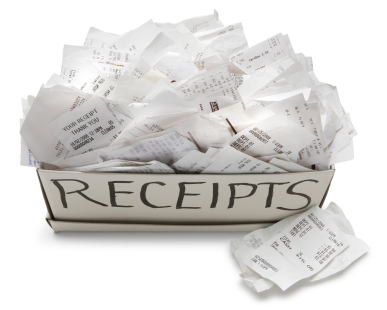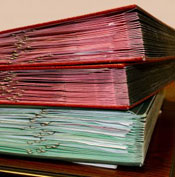Organizing Paperwork for Your Bookkeeper

When starting out, it’s not uncommon to personally handle all the work involved with running your business, but if all goes well, you’ll reach a point where it makes more sense to pay someone else to perform some of the administrative functions, so you can devote more time to serving customers and generating more income. In many cases, bookkeeping is one of the first tasks to be delegated.
Unless you’ve been well trained, a qualified bookkeeper will be able to process your paperwork more efficiently than you and make sure that all income and expenses are recorded appropriately for income tax purposes. Keep in mind, however, that for your bookkeeper to do his or her job accurately, it’s up to you to provide all required information. Since you are likely paying for the service by the hour, it is also in your best interest to make sure that your paperwork is organized in a way that your bookkeeper doesn’t have to spend a lot of time going through it all to figure out what everything is.
There are several things you can do to ensure that your bookkeeping is completed accurately and efficiently.
1. Keep your paperwork organized throughout the year – don’t throw it all in a box until tax time. If a question arises about a purchase you made 10 months ago, will you be able to answer it?
2. Separate paperwork for income, expenses, and other transactions – or ask your bookkeeper what he or she prefers.
3. When you receive a receipt, make sure that the date is clearly marked. If it isn’t, write it on the receipt while it’s fresh in your mind.
4. Similarly, make sure that the items you purchase are identified on your receipts so your bookkeeper can enter them under the appropriate tax category.
5. If you have multiple bank accounts or credit cards, make sure the account used for the transaction is clearly indicated on the invoice or receipt.
6. If you aren’t sure whether something can be claimed as a business expense, flag it with a sticky note.
7. Attach your paid client invoices to the respective deposit slips.
For paperwork which your bookkeeper has already processed, develop the habit of filing it right away. It should already be well-organized, and you will only need to pop it into the appropriate file folders. After all, didn’t you hire a bookkeeper to make your business life easier?

Hi Janet,
This is good advice. Also separating income & expense items by month is very helpful, especially if a whole year’s worth of paperwork is submitted at once. Cheque stubs are very helpful and copies of all bank statements and credit card statements. I am just processing a year’s worth of work for a client and the more organized the papaer, the less time spent and the less charged for services. If the client remits their own GST and payroll deductions, remittance copies are vital and also a breakdown of payroll deductions.
Keep up the good work!
Erika Sabo